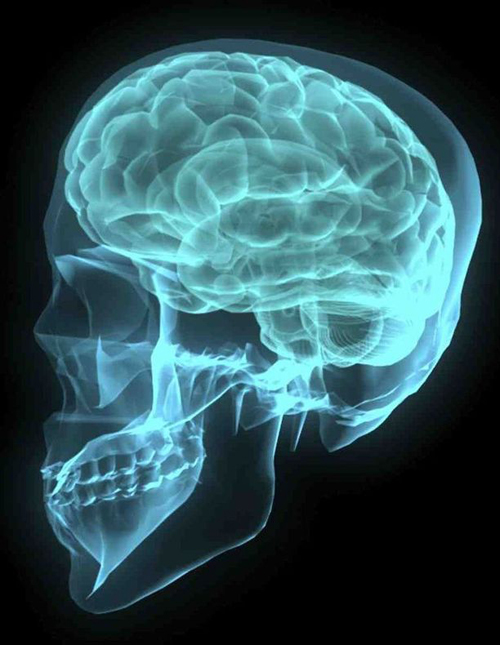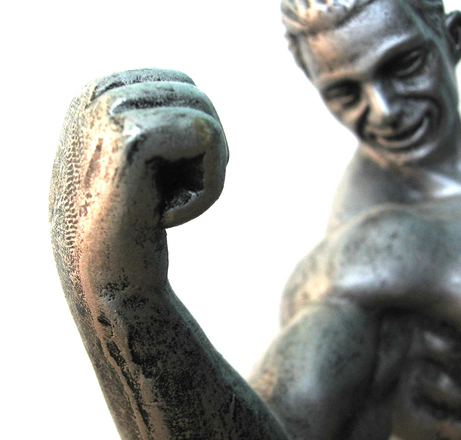The Brain's Response to Stimulants
Posted on May 27, 2020
Stimulants --caffeine, cocaine, crack, amphetamines, methamphtamine (crank).
Mind Over Matter Stimulants Series
National Institute on Drug Abuse · National Institutes of Health
 Have you eaten any chocolate or drunk any soda lately? If you have, there's a good chance you gave your body a dose of a stimulant -- caffeine, which is also in coffee. Eating or drinking a large amount of caffeine can make you feel jittery, nervous, or energetic. That is because caffeine -- like any stimulant -- changes the way your brain works. But caffeine is just a mild example of a stimulant. Many other stimulant drugs are much stronger -- and some are illegal and very dangerous. Others require a doctor's prescription.
Have you eaten any chocolate or drunk any soda lately? If you have, there's a good chance you gave your body a dose of a stimulant -- caffeine, which is also in coffee. Eating or drinking a large amount of caffeine can make you feel jittery, nervous, or energetic. That is because caffeine -- like any stimulant -- changes the way your brain works. But caffeine is just a mild example of a stimulant. Many other stimulant drugs are much stronger -- and some are illegal and very dangerous. Others require a doctor's prescription.
Examples of stronger stimulants include:
-
Cocaine: Made from the leaf of the coca plant, this drug often comes in the form of a white powder that some people inhale through their nose.
-
Crack: A form of cocaine that can be smoked.
-
Amphetamines: Often called "speed," these pills are sometimes prescribed by doctors for medical problems.
-
Methamphetamine: A powerful form of amphetamine that comes in clear crystals (called "ice") or powder (called "crank") that is smoked or injected. (more about methamphetamine)
Cocaine Tightens Blood Vessels
Cocaine causes the body's blood vessels to become narrow, constricting the flow of blood. This is a problem. It forces the heart to work harder to pump blood through the body. (If you've ever tried squeezing into a tight pair of pants, then you know how hard it is for the heart to pump blood through narrowed blood vessels.)
When the heart works harder, it beats faster. It may work so hard that it temporarily loses its natural rhythm. This is called fibrillation, and it can be very dangerous because it stops the flow of blood through the body. Many of cocaine's effects on the heart are actually caused by cocaine's impact on the brain -- the body's control center.
Miscommunication in the Brain
Cocaine and amphetamines change the way the brain works by changing the way nerve cells communicate. Nerve cells, called neurons, send messages to each other by releasing special chemicals called neurotransmitters. Neurotransmitters are able to work by attaching to key sites on neurons called receptors.
One of the neurotransmitters affected by cocaine is called dopamine. Dopamine is released by neurons in the limbic system -- the part of the brain that controls feelings of pleasure.
Normally, once dopamine has attached to a nerve cell's receptor and caused a change in the cell, it's pumped back to the neuron that released it. But cocaine blocks the pump, called the dopamine transporter. Dopamine then builds up in the gap synapse between neurons.
The result: dopamine keeps affecting a nerve cell after it should have stopped. That's why someone who uses cocaine feels an extra sense of pleasure for a short time.
Scientists Discover Answers
Fortunately, scientists have figured out how to copy the gene that controls the dopamine transporter. This process is called cloning.
By studying copies of the transporter, scientists may learn more about how cocaine affects it -- and how to prevent those effects. These studies may even lead to the discovery of a treatment for cocaine dependency.
Scientists are already working to create fake cocaine for use as a treatment. This chemical would attach to the dopamine transporter just like real cocaine does, but it wouldn't block dopamine's normal movement back into neurons. By attaching to the transporter, the substitute would block the effects of real cocaine.
For printed copies of this publication (NIH Publication No. 97-3857) contact:
National Clearinghouse for Alcohol and Drug Information
P.O. Box 2345
Rockville, MD 20847
1-800-729-6686
"Mind Over Matter" is produced by the National Institute on Drug Abuse, National Institutes of Health. These materials are in the public domain and may be reproduced without permission. Citation of the source is appreciated.
RELATED LINKS:
Counselor asks, "Please don't drink and drive."
"...researchers have long been searching for a treatment that’s as effective as those being used for other drug addiction. They may have found hope with a new process that uses a system of rewards and positive reinforcement.
SEE ALSO:
More How Drugs and Alcohol Affect the Brain and Body
Sexual Bias Articles
Race Relations Articles
Mental Health Articles
WA. Counselor Directory: find a therapist near you
How helpful is this web page to you?
(and how can we can improve this page for you?)
not helpful
very helpful
Other Articles
The Brain's Response to Methamphetamine
Adapted from: Mind Over Matter Methamphetamine Series National Institute on Drug Abuse · National Institutes of Health “Speed”, “meth”, “chalk”, &ld... read more
The Brain's Response to Nicotine
Nicotine -- cigarettes, snuff (chewing tobacco) -- sure it's legal but... For centuries, people have chewed and smoked tobacco, which comes from the plant nicotiana tabacum. The reason tobacco i... read more
The Brain's Response to Steroids
Steroids --anabolic steroid abuse has been associated with a wide range of adverse side effects ranging from some that are physically unattractive, such as acne and breast development in men, to others that... read more



